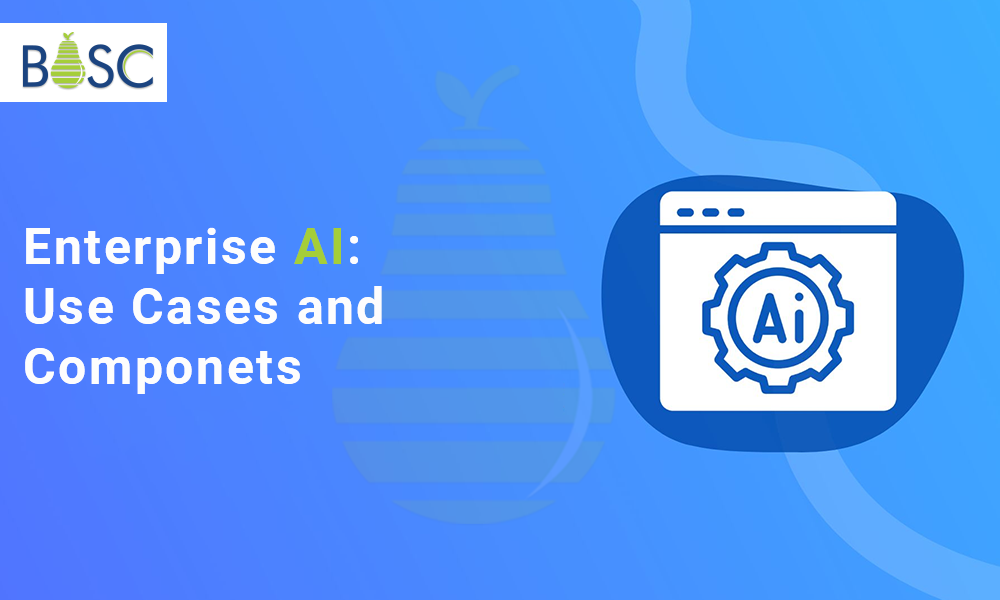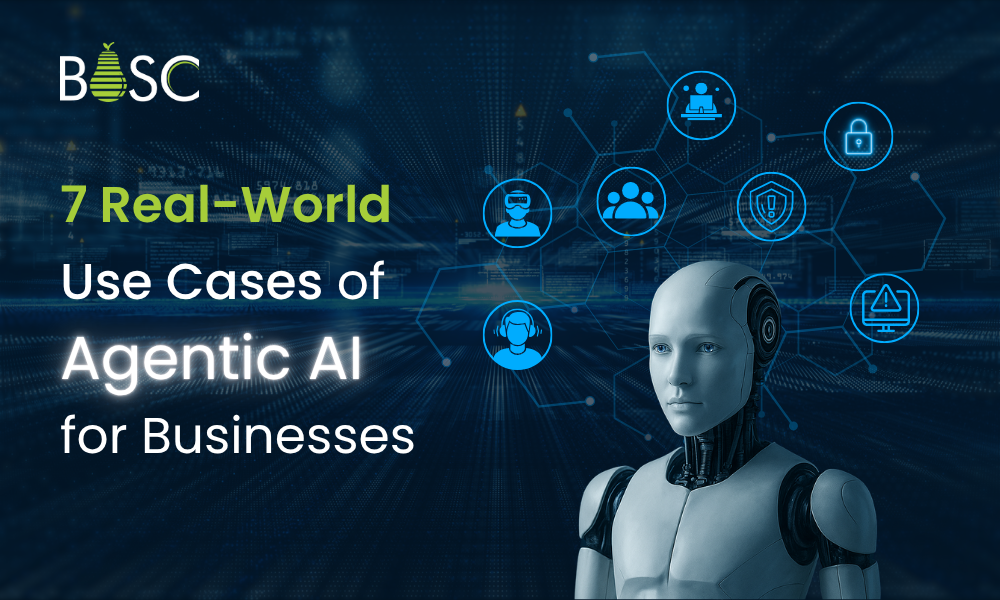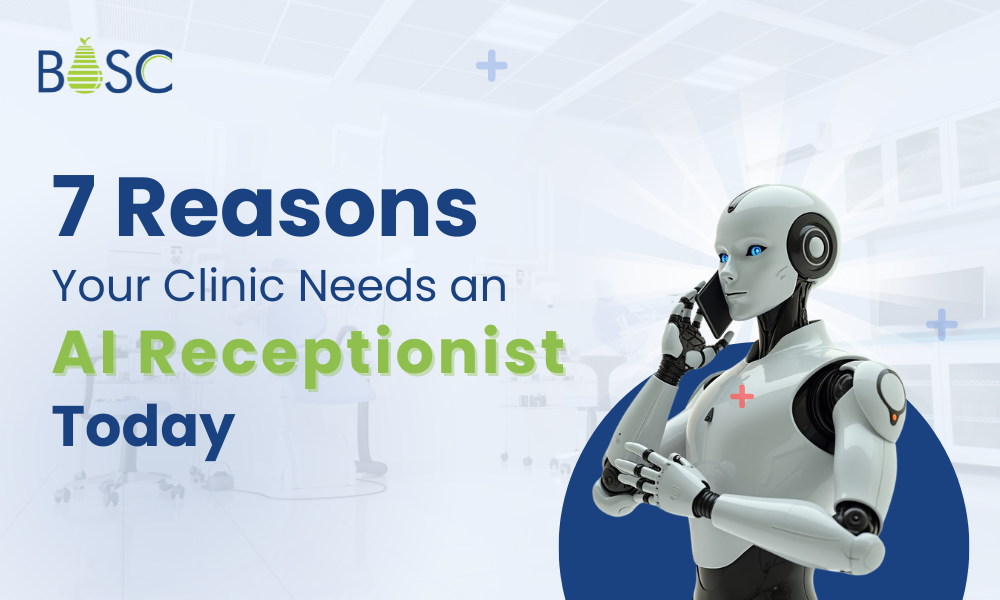Know how enterprise AI, with its customized skills, may flourish within your business. These features include handling high traffic levels, utilizing cognitive technologies, and ensuring the data is safe and secure from threats. Leverage enterprise AI to analyze your clients’ behavior so that you can give them goods or services they will purchase or continue to be interested in using.
Introduction
If you don’t make your product accessible to your target market within the time limit specified, someone else may grab the opportunity because the market recognizes what comes first. Right now, you must be making every effort to speed up the production process, but costly, time-consuming jobs that require human oversight can prolong the time to market. Competitors may have released a feature before you expected it to.
An enterprise AI adaption is an essential element in this whole thing. They may have understood artificial intelligence’s potential and all it can do with simple implementation.
To give you an idea, some examples include automating mundane tasks, providing customer-pleasing experiences, simplifying complex issues, and guaranteeing a fail-safe decision-making process. If all goes well, you can even start predicting client demand, market behavior, and bottlenecks in your current system.
Top 10 Enterprise AI Components
The strategic mobile application of artificial intelligence technologies within an organization is known as enterprise AI. It occurs to automate slow company processes, speed up decision-making, increase productivity, and boost top and bottom lines.
Let’s talk about the main components of enterprise AI:
1. NLP, or Natural Language Processing
AI’s NLP section enables quick communication between people and machines. Machines are capable of understanding and interpreting human language using NLP. Enterprise AI chatbot solutions can significantly benefit an organization in this way.
2. Automation and Robotics
AI uses enterprise Robotic process automation (RPA) technologies and software robots to perform repetitive, time-consuming processes. As a result, you will see an improvement in efficiency in sectors like finance, supply chain, and customer service, as well as a reduction in errors.
3. Decision-Support Systems
AI-powered decision support systems are tried-and-true tools that have significantly contributed to decision-making. Resource allocation, strategy planning, and supply chain management are the processes that will be most advantageous.
4. Ethics-Related Matters
Enterprise AI includes data privacy, ethical AI practices, and legal compliance. Businesses must establish governance frameworks to monitor AI executions and combat discrimination.
5. Infrastructure for Data
For artificial intelligence to achieve the required outcomes, data is essential. The data, whether organized or unstructured, from various sources, including interactions with clients, operational processes, and external data, can significantly aid in ensuring that the desired outcomes are attained.
And when you have a lot of data, you need a data infrastructure to manage, store, and analyze it without worrying about whether it’s on the cloud or on-premises. Utilizing a data warehouse to store the data that adds value is advised.
6. Neural Networks
This field of artificial intelligence interprets visual data from pictures or videos. The manufacturing sector’s quality assurance, security, and image identification systems can benefit significantly from computer vision.
7. Cognitive Computing
This kind of AI computing uses artificial intelligence to boost human thought processes. As a result, it can read unstructured data, learn from experience, and communicate with people to evaluate data, which considerably helps in diagnostic and legal research.
8. Deep and Machine Learning
Deep learning uses neural networks for speech recognition, natural language processing, and image classification. Further, it is a field of artificial intelligence that has gained prominence and shows promise.
On the other hand, machine learning makes sure that your system automatically improves its performance while learning from data. Your software can understand and analyze data using several methods, including neural networks, decision trees, and regression.
9. Predictive Analysis
Predictive analytics is a crucial component of artificial intelligence that aids in predicting future demand, trends, results, and events. This could be crucial for risk management, customer churn forecasts, and enterprise-level decision-making.
10. Cloud Computing and Edge AI
When looking for scalability and accessibility, cloud computing is something to think about. Most businesses extensively invest in cloud computing and platforms to scale their apps. Edge AI enables real-time processing for applications like autonomous vehicles by running AI algorithms on local devices and edge servers.
Enterprise AI Use Cases
The list of artificial intelligence in business use cases is shown below. Some of the application cases of AI have been considered in terms of industries. Please choose the best fit for your business and begin preparing to implement it.
1. Support and engagement for Customers
- Create a business AI chatbot and a virtual assistant to respond to client inquiries whenever they occur.
- Utilize sentiment analysis to evaluate client happiness with your product or service, and if they are not, try to identify any potential problems.
- Customize product suggestions based on consumer behavior.
2. Human Resources
- Automate resume screening and candidate matching.
- Evaluate the employee retention rate and churn rate.
3. Finance & Risk Management
- Utilize anomaly detection algorithms to find and stop fraud.
- Utilize credit score and risk assessment information to make lending decisions.
4. Healthcare
- Enterprise Leverage AI for disease diagnosis using medical picture analysis.
- Use predictive analysis to allocate hospital resources and determine patient outcomes.
- Use AI to find and develop new drugs.
- Use AI to design customized healthcare systems.
5. Marketing and Sales
- Utilize enterprise AI to create dynamic pricing plans and adjust rates following market trends of enterprise software.
- Make sure to use predictive analytics to predict client attrition.
Conclusion
Integrating enterprise AI into your organization will always be advantageous because it improves accuracy and efficiency. On your squad, be sure to have experienced software developers familiar with current developments. You may always contact a reputable enterprise software development company if you need to. You can rely on the tested software developers for any problem, discuss your issues with them, and be confident in the prospective responses.
Frequently Asked Questions (FAQs)
1. What is an enterprise AI?
Artificial intelligence (AI), or the capacity of a machine to learn, understand, and interact in a very human way, is combined with software created to tackle organizational goals to develop enterprise AI.
2. What are the applications of enterprise AI?
Using enterprise AI, you can automate tasks, increase output, and maintain security. Bosc Tech Labs promises quick ML algorithms, computer vision, predictive modeling, and customized software outputs.
3. What advantages does AI provide to my business?
AI can benefit your business by improving efficiency, creating new products and services, and enhancing customer satisfaction.




